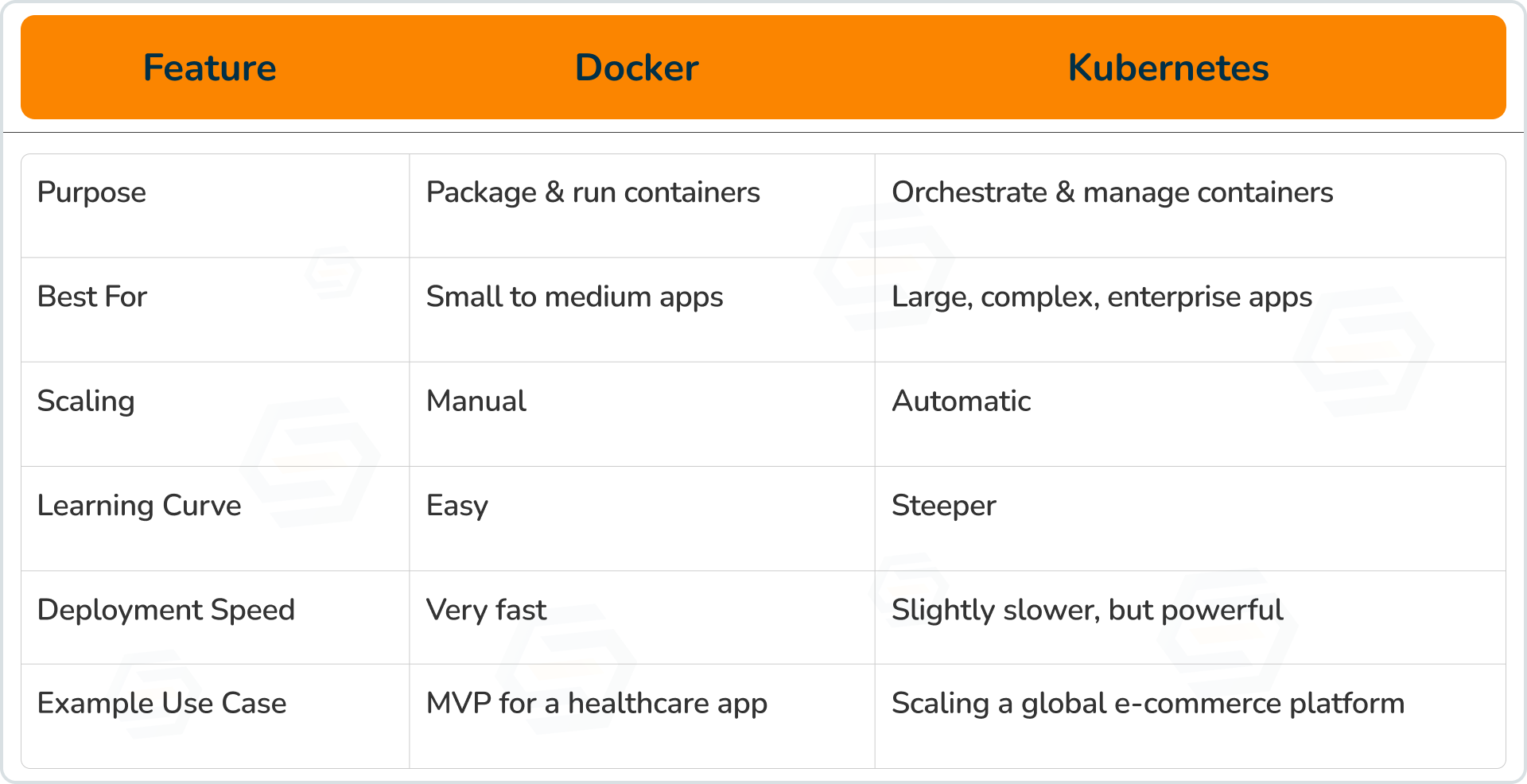-
Docker helps you package and run applications inside containers.
-
Kubernetes helps you manage, scale, and orchestrate those containers across multiple servers.
What is Docker?
Example: Healthcare System
-
Every developer has to install the same versions of Node.js, databases, and libraries.
-
If even one machine has a different setup, errors appear: “It works on my machine but not on yours.”
-
You create one container that already includes Node.js, your database configuration, and libraries.
-
Now, anyone can run that container, and it will work the same way everywhere—whether on AWS, Azure, or a local computer.
Benefits of Docker
-
Portability: Runs the same in any environment.
-
Faster Deployment: Containers start in seconds, unlike virtual machines.
- Consistency: No more “it works on my machine” issues.
- Microservices-Friendly: Ideal for breaking large applications into smaller, independent services.
When to Use Docker
-
Build small to medium-sized applications.
-
Create prototypes or MVPs (Minimum Viable Products).
- Need development & testing environments that behave the same everywhere.
- Want to work on microservices projects.
What is Kubernetes?
-
Where containers should run.
-
What happens if a container crashes?
- When to add more containers if demand increases.
- How to balance traffic between containers.
Example: Fintech App
-
With only Docker, you would need to manually add more containers to handle the load. This means constant monitoring and extra work.
-
With Kubernetes, the system automatically detects the surge in traffic and creates new containers to handle it. When traffic goes back to normal, Kubernetes reduces the containers—saving you money on cloud costs.
Benefits of Kubernetes
-
Auto-Scaling: Handles sudden traffic spikes automatically.
-
Self-Healing: If a container crashes, Kubernetes restarts it.
- Load Balancing: Distributes traffic across containers.
- Cloud-Native Ready: Works with AWS, Azure, and Google Cloud.
-
Enterprise-Grade: Perfect for large, mission-critical applications.
When to Use Kubernetes
-
Build enterprise applications with heavy traffic.
-
Need systems that are always available (high uptime).
- Work in multi-cloud or hybrid-cloud environments.
- Run applications that require continuous scaling.
Docker vs Kubernetes: A Clear Comparison

Real-World Scenarios
Healthcare
-
Docker: Build an MVP hospital management system quickly.
-
Kubernetes: Run a telemedicine platform that needs to handle thousands of video calls at the same time.
Fintech
-
Docker: Create a proof-of-concept for a digital wallet.
-
Kubernetes: Run a large-scale payment gateway that processes millions of transactions daily.
E-commerce
-
Docker: Build a small online shop with limited products.
-
Kubernetes: Run a global e-commerce platform (like Amazon) with traffic spikes on Black Friday or holiday sales.
How Sparkle Web Helps
-
Healthcare SaaS solutions with Docker for quick MVPs.
-
Fintech platforms with Kubernetes for global scalability.
- E-commerce apps that auto-scale during holiday shopping seasons.
Final Thoughts
-
Use Docker if you want speed, simplicity, and portability.
-
Use Kubernetes if you need scalability, resilience, and enterprise-level management.



Dipak Pakhale
A skilled .Net Full Stack Developer with 8+ years of experience. Proficient in Asp.Net, MVC, .Net Core, Blazor, C#, SQL, Angular, Reactjs, and NodeJs. Dedicated to simplifying complex projects with expertise and innovation.
Reply